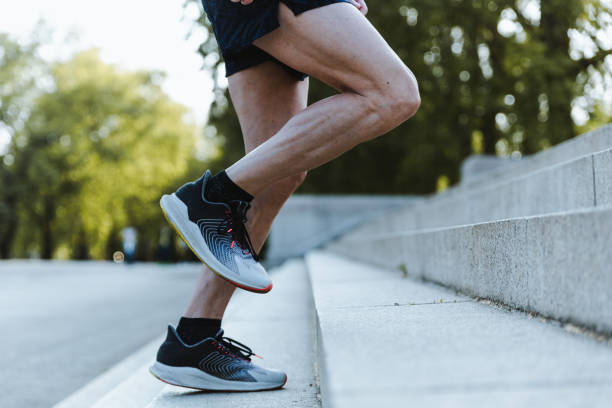As you grow older, your knee becomes more susceptible to injuries and infections.
Some older adults find it difficult to effectively carry out activities, such as climbing the stairs, walking, sitting down, or standing up. Sometimes, the knee joints become sore, swell, and cause pain.
Your knee is the largest joint of the body and may be strained by various unhealthy lifestyle patterns such as excessive weight, lack of muscle-strengthening exercise, alcoholism, and so on.
The best treatment to ensure that your knee retains its vitality as you grow older is to practice effective health tips.
In this article, you will get to find out some must-know health tips for knee health.
8 Super-Important Health Tips for Knee Health
Below are the health tips that will maintain your knee health and reduce the risk of developing joint diseases, inflammation, and common injuries.
1. Maintain a healthy weight
Excessive weight or obesity is a major contributing factor to knee injury, pain, arthritis, and increased inflammation. Obesity puts extra weight on your knee, which weakens it.
Each pound of weight you lose lessens the weight on your knees. So get involved in weight loss diets and exercises if you are overweight.
2. Carryout muscle-strengthening exercises
One of the effective health tips for knee health is to carry out muscle-strengthening exercises.
These types of exercise help to strengthen the bones of your knee and give them extra support. Also, it helps to alleviate pain and prevent future problems.
The Academy of Orthopedic Surgeons states that strong and flexible muscles keep the knee healthy and strong.
3. Stay active
Stay active by carrying out low impact exercises such as walking, jogging, or biking. Staying active helps to rebuild the joint of the knee and strengthens it. Additionally, staying active helps you to lose weight!
You don’t have to walk all day; walking for 30 minutes daily is effective in promoting healthy knees.
4. Improve your posture
Poor posture can strain your joints. Your posture is vital in the proper alignment of your joints, including your knees, hips, and shoulders.
Improving your posture is one of the most crucial fitness tips for your joints.
Proper posture should be maintained, whether it is sitting down or standing. If you are sitting down, sit with your knee bent and feet placed firmly on the floor.
If you are sitting on the floor, bends your knees with your legs placed sideways or stretched out. Avoid sitting on your knees, as this can place much stress and decrease blood circulation in your joints.
If you are standing, ensure you are not bending; stand straight with your legs properly stretched. Also, try to change your posture to minimize knee strain when sitting for a long time.
5. Take food that promotes knee health
Nutrition plays a great role in promoting a healthy knee. Root veggies and garlic should be included in your diet.
Root vegetables such as garlic, onions, turmeric, and ginger have excellent anti-inflammatory properties that help treat symptoms of joint pain and arthritis. In addition to being healthy, they add additional flavor to your food.
6. Pay attention to your knees
Pay attention to your knee as you grow older. Consult the doctor immediately if you observe swelling or redness around your joint.
Also, if you experience difficulty climbing stairs to standing after sitting for a long, your need to see the doctor. Don’t allow it to degenerate before you seek help from the doctor.
7. Wear supportive shoes
Wearing supportive shoes can help protect your knee health by reducing the impact of shockwaves, promoting stability and alignment, and distributing pressure more evenly across your feet.
By minimizing the stress on your knees, supportive shoes can help prevent injuries and keep your knees healthy.
8. Follow the proper technique during physical activities
Doing the proper technique can help distribute the forces and stresses generated during physical activities more evenly across your body, reducing the amount of pressure placed on your knees.
This can help prevent excessive wear and tear on the joint, which can lead to pain and injury over time.
Furthermore, sudden movements, such as twisting or jerking motions, can place significant stress on your knees and increase your risk of injury.
Using proper technique can help you avoid sudden movements and instead perform controlled, smooth movements that place less stress on your knees.
Conclusion
Practicing these above health tips for knee health does not mean you will never have knee problems. They help to strengthen your knees and reduce the risk of developing knee problems. Also, they promote quick recovery even if you have one.








